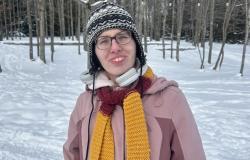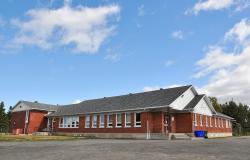Human rights advocates hope a national registry created in November 2023 will reveal the extent of forced and coerced sterilization of Indigenous women in Canada.
It is difficult to know the extent of the problem at present, because there has been no national report or detailed study on it
said Kahsenniyo Kick, from Survivor Circle for Reproductive Justicea non-profit organization.
Forced or coerced sterilization refers to the practice of sterilizing Indigenous women in Canada without proper or informed consent.
Since there were no official figures or records to identify these cases, the organization created a national registry in November 2023.
Survivor Circle for Reproductive Justice also supports survivors and advocates for reproductive justice for all First Nations, Inuit and Métis people in the provinces and territories.
Get in touch with the greatest number
of survivors
Kahsenniyo Kick grew up in the Six Nations community in Ontario. She says she was forced into sterilization in a hospital when she was a teenager.
Specifically, when she went to give birth by cesarean section, she was sterilized without fully understanding or giving consent.
There is a lot of shame, embarrassment and guilt that I carried for a very long time
confided Ms. Kick.
For me, it is therefore a question of ensuring that information circulates on people’s rights and on the conditions to be met for consent to be valid.
We really hope to be able to connect with as many survivors as possible. Our work is really focused on them.
She said Indigenous women living in the North are more likely to be sterilized because they often have to travel outside their community to receive medical treatment.
-We therefore do not have an overview of the issue, but it is certain that women in the North face a certain vulnerability in terms of racism within the [système] health
said Ms. Kick.
An experience very personal
Steven Cooper, an Edmonton-based lawyer specializing in Indigenous law, is involved in class actions related to forced sterilization in Canada. According to him, forced sterilization often goes unreported, so survivors don’t always know they were victims.
Open in full screen mode
According to lawyer Steven Cooper, forced sterilization often goes unreported, so survivors are unaware they were victims.
Photo: Photo provided by Steven Cooper
The national registry could improve our knowledge, but I’m not sure it will make much of a difference
believes Mr. Cooper.
One of the problems is that forced sterilizations are very personal experiences. They do not have the same type of community network as, for example, residential school survivors.
He said the fact that survivors continue to speak out will help reveal the scale of the problem. We know there are others. I have been contacted by three or four other people who are hesitant to move forward
Mr. Cooper said. [Mais] when they learn that someone who has been through the same situation has come forward, they find strength [de s’exprimer].
For her part, Ms. Kick indicated that, as part of the creation of the national registry, indigenous survivors can apply to benefit from a healing fund. This fund can help them finance therapy sessions or reproductive techniques, among other things.
Based on a text by CBC’s Nadeer Hashmi






